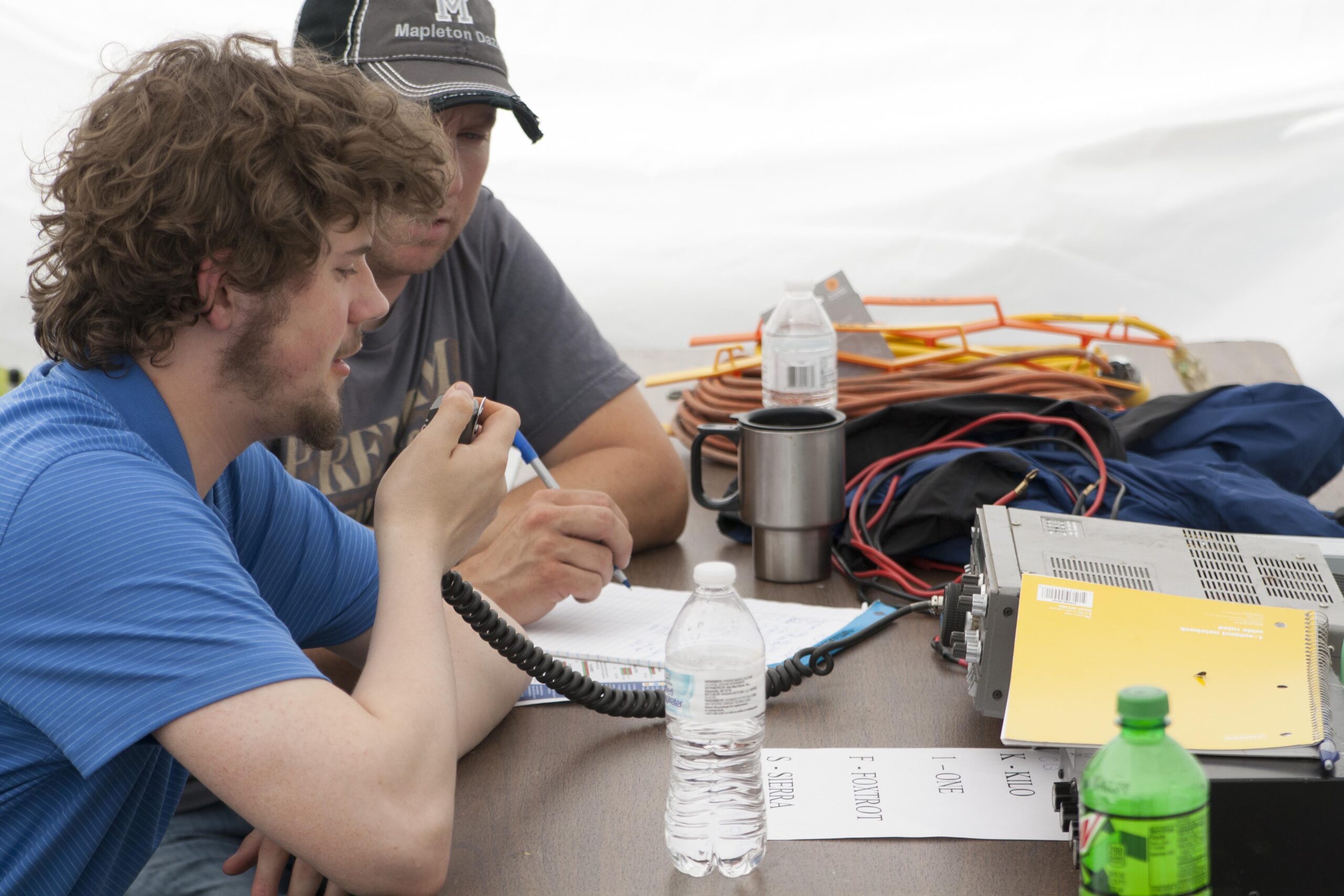
PRESQUE ISLE, Maine — Under the guise of a hobbyist, your friendly neighborhood ham radio operator may spring into action and lend a hand to local emergency services when a crisis strikes in your area.
Last week, the annual 24-hour period known as Field Day, across both the US and Canada, had emergency services and amateur ham radio operators participating in a mock exercise simulating a catastrophic event.
“The County has extremely long winters, we can have ice jams, which will cause flooding or we can have a blizzard, which would knock power out and isolate citizens. We would use ham radio so law enforcement, fire department, ambulances are not overloaded with information,” said Jim Cerrato, the ham radio operator in charge of this year’s Field Day.
In The County, the Amateur Emergency Radio Service (ARES), the Aroostook Amateur Radio Association and the St. John Valley Amateur Radio Association partnered with the Aroostook Emergency Management Agency and demonstrated what it would be like if emergency radio services overloaded and cell services shut down.
During last weekend’s mock crisis, ham radio operators set up a radio station on the Northern Maine Fairgrounds in Presque Isle, including a 100-foot radio tower to communicate between operators.
“Because we have many operators out in The County, we would be able to cover that area and it relieves law enforcement from unnecessary communication traffic,” Cerrato said. “So if there’s a crisis situation that law enforcement or fire needs to respond to, they don’t worry about trying to figure where Mrs. Jones is and trying to get her to a shelter.”
There are ARES members spread throughout Aroostook County and the world.
“Almost every town of any significant population has an ARES team. Our ARES team covers Fort Fairfield, Presque Isle, Caribou, Washburn, but if you went down to Houlton there would be another ARES team there,” Cerrato said.
Most ham radio operators start out as hobbyists with the minimum license requirement of technician, “Which is the entry level license for a ham operator. We have members of the team called Extra and then some called General; that’s just a classification for the number of frequencies they are able to operate on legally,” Cerrato said.
Someone new to ham radio who would like to volunteer with their local ARES team would work under the supervision of a licensed operator.
“Under my supervision or another operator’s supervision you could actually work the radio and give us a break,” Cerrato said.
“Ham radio is a hobby that people in their pre-teens to centenarians are involved in,” he added. “Men and women from military experience, classroom experience as educators, find ham radio as an outlet to provide a service and to also make new friends around the world.”







